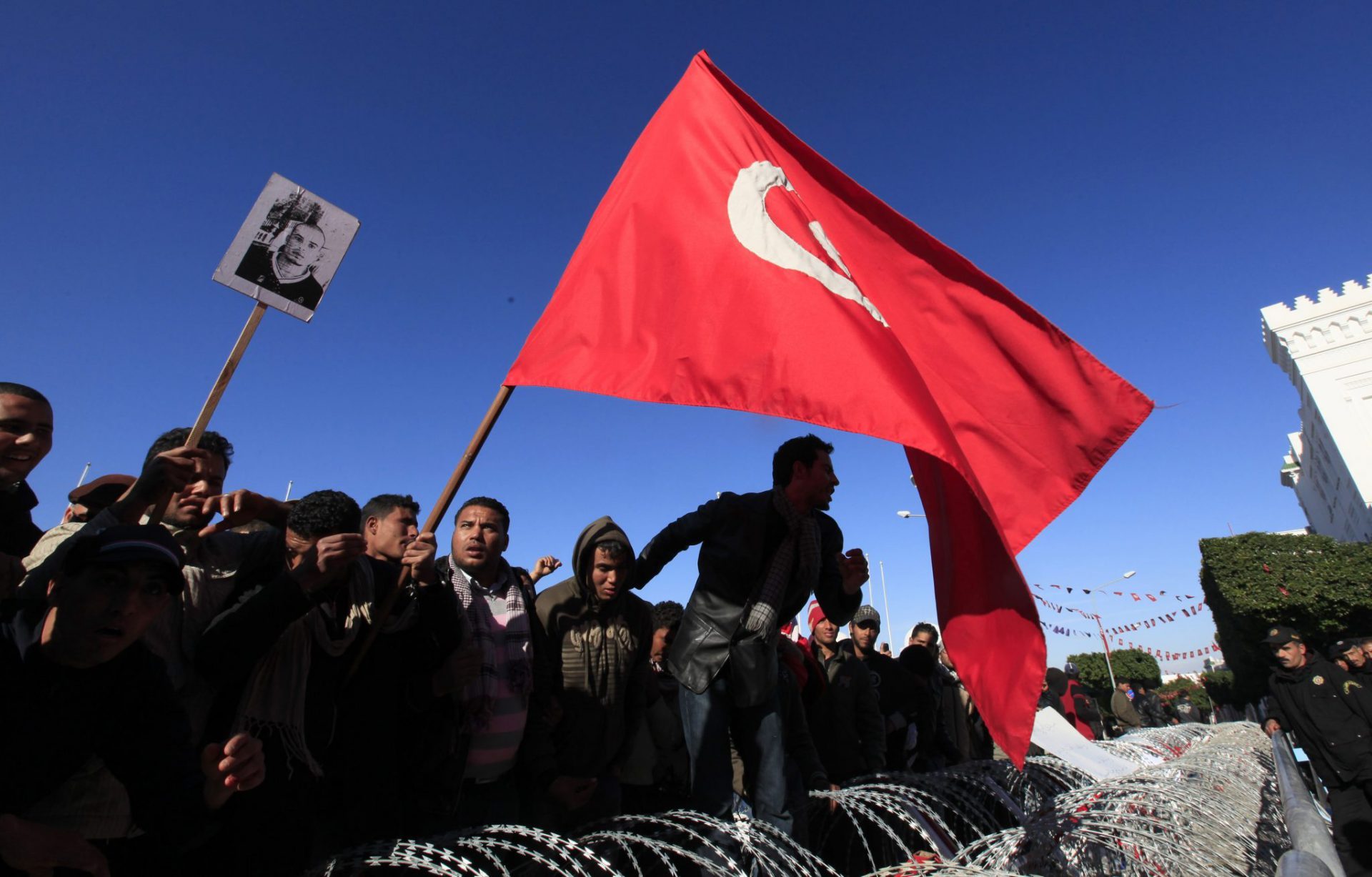
SPRINGING BACK
Tunisians expected to rally over strict austerity measures

In response to the austerity measures imposed by the government’s new Finance Act, Tunisian protesters are expected to come out in force today in Tunis.
This follows a week of unrest, which saw a surge in violent protests that resulted in dozens of state buildings being damaged, mass looting, one death and at least 800 detentions.
The new measures aim to reduce the budget deficit and placate international lenders, who extended a $2.9 billion loan in 2016 in exchange for civil service cuts and greater fiscal prudence. This has caused prices and taxes to rise across a range of essential goods and services, like fuel, cars and internet use.
Today’s protests also mark the seventh anniversary of ex-autocrat Ben Ali’s overthrow, symbolising that many of the structural problems that caused the revolt remain unaddressed and underpin current frustrations.
While the Interior Ministry Spokesman Khelifa Chibani has said “what is happening is crime, not protests”, campaigners accuse the government of an “indiscriminate” crackdown. Given the government’s reaction so far, today will likely result in heavy clashes.
SEAL THE DEAL
Japanese PM kicks off Eastern Europe trade tour

As Bulgaria assumes its first presidency of the European Union this month, Shinzo Abe will arrive in the country today for talks with its prime minister.
Coming at the start of a five-nation trip to Eastern Europe, Abe will put free-trade at the centre of his agenda. With Bulgaria holding the rotating presidency, Tokyo will be looking to influence implementation plans for the recently concluded EU-Japan Economic Partnership.
Seeking new markets to aid its economic recovery, Japan is hoping that the agreement (representing 30% of global GDP) can help open restricted European sectors to Japanese goods, services and investments. The agreement will eliminate tariffs on imports of Japanese automobiles and industrial goods and end tariffs on European agricultural exports to Japan. The agreement is expected to boost Japanese GDP by up to 1%.
Expect Abe’s Eastern Europe tour to bring the much-touted trade deal closer to implementation. As Bulgaria seeks to put a timetable in place over the coming months, expect the agreement to be formally employed sometime in 2019.
PUMPING PETROS
Venezuelan president holds meeting on new cryptocurrency

Today, Nicolas Maduro is set to convene a meeting of miners of his country’s new oil-backed cryptocurrency, the petro. Caracas plans to issue 100 million coins in coming weeks.
Announced last month, one petro will equal one barrel of Venezuelan oil––about $50. The currency will allow foreign buyers to purchase oil by circumventing sanctions placed on Venezuela over its human rights abuses and increasingly authoritarian government.
The opposition-controlled parliament has decried the petro as “illegal” and questioned its likelihood of success. Regardless, the president will press on with the launch.
For Venezuela, a successful launch could bring in money to a financially-desperate government; however, the petro will not ameliorate structural economic ills. Globally, other countries will look to see if there is merit in launching their own asset-backed, government-endorsed digital currencies. Even if Maduro fails to beef up his economy, he could be setting a trend that could see cryptocurrency lose its unregulated character if governments take control.

